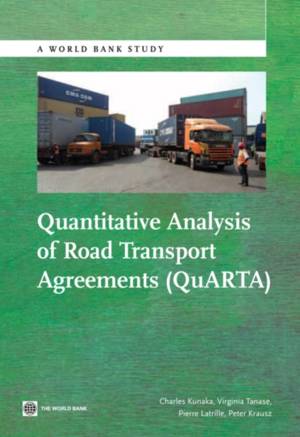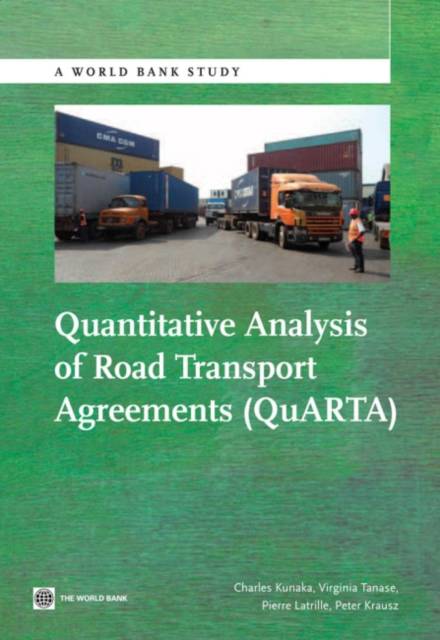
- Retrait gratuit dans votre magasin Club
- 7.000.000 titres dans notre catalogue
- Payer en toute sécurité
- Toujours un magasin près de chez vous
- Retrait gratuit dans votre magasin Club
- 7.000.0000 titres dans notre catalogue
- Payer en toute sécurité
- Toujours un magasin près de chez vous
Quantitative Analysis of Road Transport Agreements - Quarta
Charles Kunaka, Virginia Tanase, Pierre Latrille
44,45 €
+ 88 points
Description
Road freight transport plays an indispensable role in international economic cooperation and foreign trade. For short and medium distances in particular, road freight transport constitutes a predominant share of overall traffic, but it also plays a significant role in long distance haulage, where time is more of an issue. Therefore, efforts should be made to minimize any physical or administrative barriers hampering international road freight transport, given the integral part it plays in the global trade logistics industry. This study was motivated by a realization that, in the absence of full liberalization of market access, bilateral agreements are the main instrument used to govern and regulate international road transport services. Depending on their scope and the rights they grant, bilateral agreements reflect the degree of market openness between countries.
Spécifications
Parties prenantes
- Auteur(s) :
- Editeur:
Contenu
- Nombre de pages :
- 101
- Langue:
- Anglais
- Collection :
Caractéristiques
- EAN:
- 9780821398517
- Date de parution :
- 12-04-13
- Format:
- Livre broché
- Format numérique:
- Trade paperback (VS)
- Dimensions :
- 175 mm x 249 mm
- Poids :
- 272 g

Les avis
Nous publions uniquement les avis qui respectent les conditions requises. Consultez nos conditions pour les avis.






